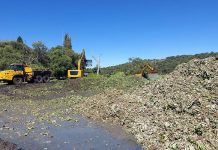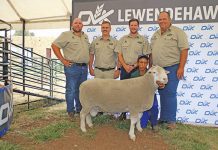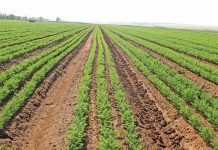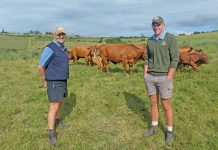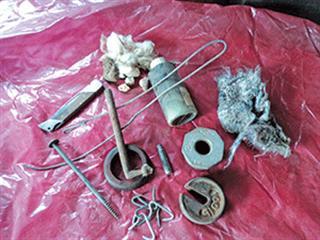
Hard objects, such as metal hooks, pieces of wire and stones, cause the most damage during early processing. Contamination by bags and baling twine is picked up at the end of the process when the material has been woven. “While the damage is being caused by perhaps one incident in 10 000 cases, the contamination will eventually cost the whole industry dearly if the trend is not stopped,” said Staats, adding that it sends the message to wool buyers that SA’s wool was not being “as carefully handled as in the past and that it no longer deserves the price premium it once had.”
He warned that buyers were already getting legal advice about the possibility of suing guilty farmers, or at least having their names made public. “Contamination can cause hugely expensive breakages to processing machinery or defective cloth,” said Staats. He said the problem stemmed from negligent farm workers and shearers, as well as farmers not supervising the shearing, classing and baling processes thoroughly enough.
At the same time, potential sources of contamination had increased. Polypropylene bags used by feed and fertiliser companies had become a huge problem, for example. “Not only do whole empty bags land up in wool bales, but they tend to disintegrate and their fine fibres are blown all over the place, even into shearing sheds,” said Staats.
Contamination is a countrywide problem and present in all types of wool, but bin lots are usually cleaner, because these wools are re-sorted by hand, allowing problems to be identified more easily than is the case with bales. “While twine and polypropylene are the main culprits, there are lesser problems with hair or kemp from Dorper-type sheep or Angora goats,” said Staats.
He said that the first step SA farmers should take to address the contamination threat was to get paranoid about shearing shed discipline. “One simply can’t do enough to keep one’s wool clean.”
Keep your clip clean
- Inspect the shearing shed and pens carefully every day before every shearing, paying special attention to baling twine.
- Polyprop bags shouldn’t be left anywhere on the farm yard.
- Keep tabs on all metal equipment used for baling the clip.
- Keep dogs well away from the shearing area as their loose hairs could end up in the wool. For the same reason don’t use a hairy broom to sweep the floor.
- Ensure that no loose items of any type are lying around in the shed. That includes clothing, marking pens and cigarette ends.
- Restrict access to the shearing shed. Do not use it for any other purpose before the wool has been baled.

